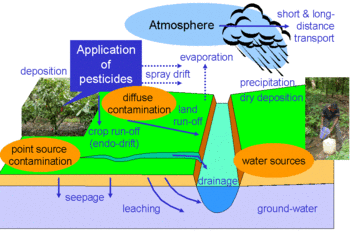Both pesticides and herbicides are designed to kill living organisms. Pesticides are used to eliminate plant-damaging bugs while the use of herbicides is directed at killing unwanted plants, such as weeds. Both of these products are available in chemical form, synthesized for commercial and consumer use.
Pesticides and Human Health
Pesticides and Human Health
Pesticides have been linked to a wide range of human health hazards, ranging from short-term impacts such as headaches and nausea to chronic impacts like cancer, reproductive harm, and endocrine disruption.
Acute dangers - such as nerve, skin, and eye irritation and damage, headaches, dizziness, nausea, fatigue, and systemic poisoning - can sometimes be dramatic, and even occasionally fatal.
Chronic health effects may occur years after even minimal exposure to pesticides in the environment, or result from the pesticide residues which we ingest through our food and water. A July 2007 study conducted by researchers at the Public Health Institute, the California Department of Health Services, and the UC Berkeley School of Public Health found a sixfold increase in risk factor for autism spectrum disorders (ASD) for children of women who were exposed to organochlorine pesticides.
Pesticides can cause many types of cancer in humans. Some of the most prevalent forms include leukemia, non-Hodgkins lymphoma, brain, bone, breast, ovarian, prostate, testicular and liver cancers.

No comments:
Post a Comment